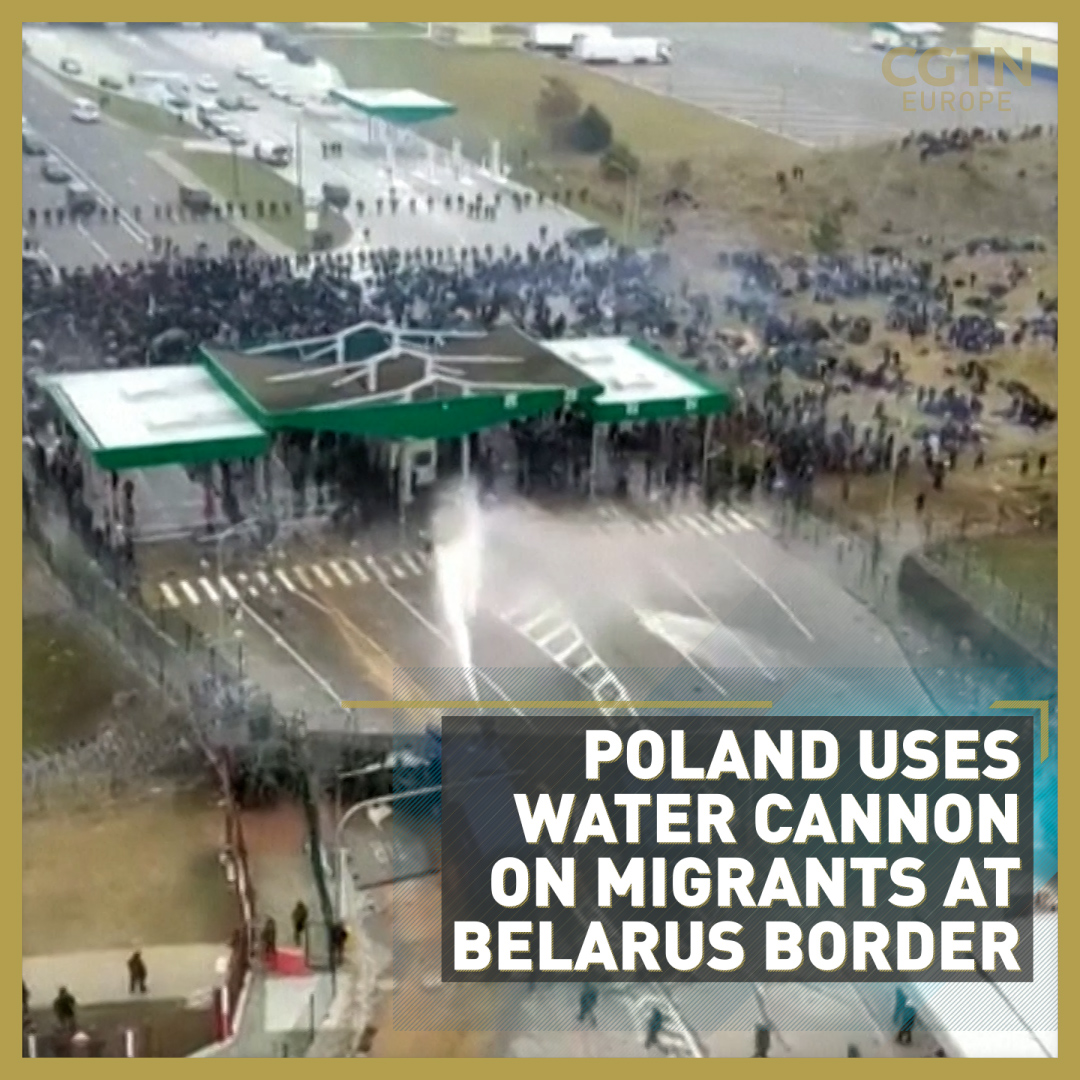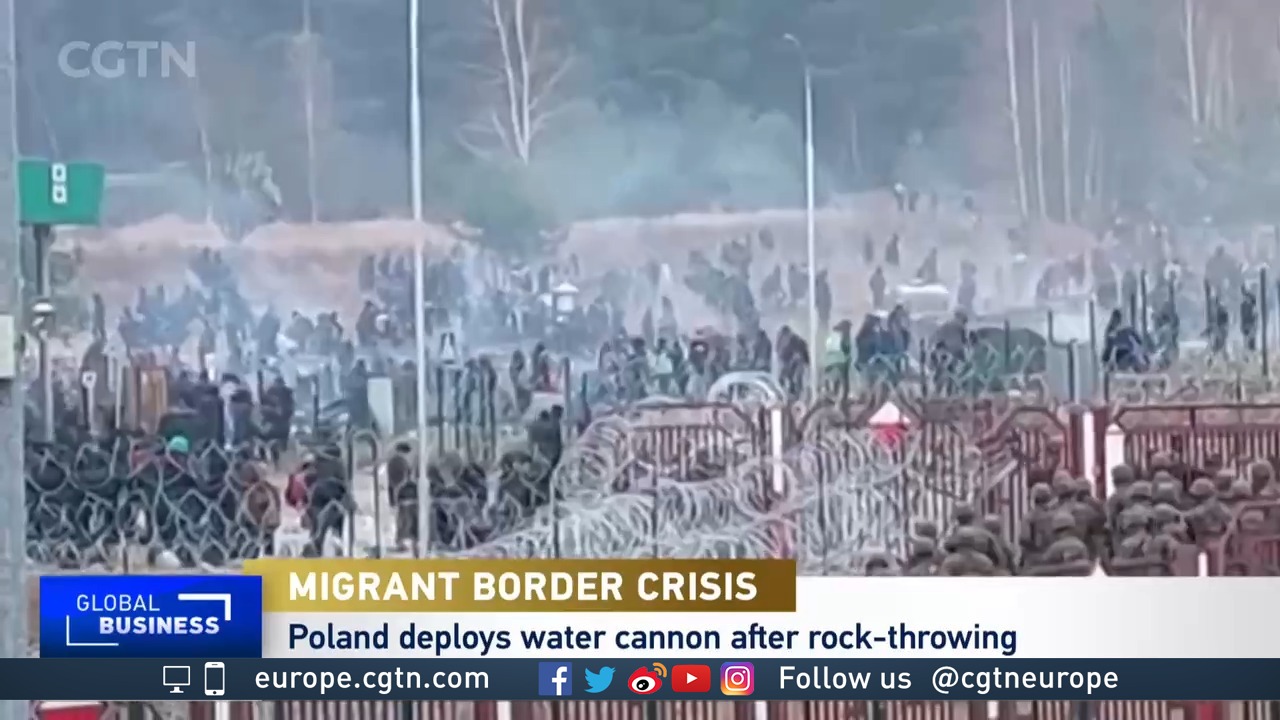00:49

Polish forces have fired tear gas and water cannon at migrants trying to cross the border with Belarus, which has led to an escalation of the ongoing dispute between the two nations.
Up to 4,000 migrants are estimated to be currently camped out on the Belarus side of the border. There were reports of stones being thrown at Polish border guards, which prompted the use of water cannon despite the freezing conditions.
"Migrants attacked our soldiers and officers with rocks and are trying to destroy the fence and cross into Poland," according to the defense ministry, which also tweeted a video showing apparent clashes at the border.
"Our forces used tear gas to quell the migrants' aggression."
READ MORE:
Current education path 'unsustainable'
Diversifying Germany's forests
Poland urged to help migrants at Belarus border
Of the 15,000 Polish troops deployed to the border, officials have reported a police officer, a border guard and a soldier have been injured in the clashes.
Belarus has responded, accusing Poland of exacerbating the problem. Foreign ministry spokesman Anatoly Glaz said: "We see today from the Polish side direct provocations and inhumane treatment of the disadvantaged."
02:19

The build up of such a large number of migrants on the border has warranted the Council of Europe's Commissioner for Human Rights Dunja Mijatovic to visit the region. She told reporters the situation is "extremely dangerous." Adding: "We need to find a way to de-escalate, to make sure the focus is really to stop the suffering."
Belarus's President Alexander Lukashenko discussed the crisis with Germany's Angela Merkel on Monday in what is his first phone call with a Western leader since mass protests following last year's general election results.
"The main thing now is to protect our country and our people and not to allow clashes," he told a government meeting, according to state news agency Belta.
Lukashenko's call for a de-escalation comes in the wake of EU foreign ministers expanding the current sanctions on the Belarusian regime to include individuals found to be responsible for assisting border crossings.
Cover image: Leonid Shcheglov/Belta/AFP
Source(s): AFP

